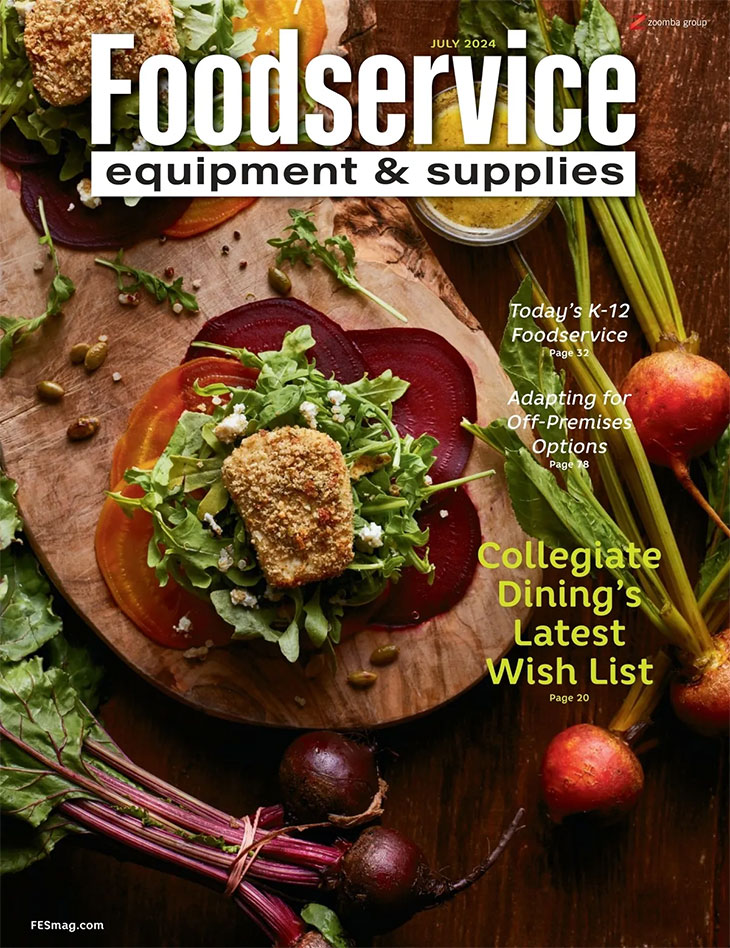Ris Lacoste, chef-owner of RIS, was excited to go through the REAL questionnaire to see how many points her restaurant could earn. "Over half of our menu comes from locally grown food at the height of the season, and I go to the farmer's market about two to three times per week," she says. "Outside of that, we work with a produce purveyor who also sources local product for us."
 RIS, an upscale café in Washington, D.C., is a certified REAL restaurant. The Responsible Epicurean and Agricultural Leadership (REAL) program aims to recognize and reward restaurants that save natural resources, offer healthier food options and support local, sustainable producers.As part of the certification process, Lacoste sat down with a nutritionist and other members of the REAL team in a face-to-face meeting to go over at least 50 questions about her menu, cooking and preparation methods, sourcing and more.
RIS, an upscale café in Washington, D.C., is a certified REAL restaurant. The Responsible Epicurean and Agricultural Leadership (REAL) program aims to recognize and reward restaurants that save natural resources, offer healthier food options and support local, sustainable producers.As part of the certification process, Lacoste sat down with a nutritionist and other members of the REAL team in a face-to-face meeting to go over at least 50 questions about her menu, cooking and preparation methods, sourcing and more.
As part of the certification process, Lacoste sat down with a nutritionist and other members of the REAL team in a face-to-face meeting to go over at least 50 questions about her menu, cooking and preparation methods, sourcing and more.
Lacoste says she's been focused on fresh, wholesome food for some time, which helped her pass the initial verification round. "REAL rewards restaurants that are making the effort to feed people well and feed people food that is good for them."
While some RIS menu items are fried, such as shrimp tempura and soft-shell crab, Lacoste says she's tried to revolve dishes around seasonal, fresh vegetables and include more grain-based options. She also plans to incorporate more local, farm-fresh eggs, and she sources sustainable meat and seafood as much as possible, including nitrate-free bacon. Knowing which dishes contain allergens is also an important part of REAL certification.
When REAL comes back with the official guidelines, Lacoste will again be assessed as to where she stands on the checklist of do's and don'ts. In the meantime, Lacoste says, the REAL team has been working to determine just what those don'ts are — for example, the use of trans fats or excess sodium. If RIS meets the threshold for basic certification, the restaurant may be able to earn additional points toward higher levels.
Still, Lacoste says, "They don't want to punish restaurants for the 'bad' things they're doing, but rather, they're encouraging us to do better things for our customers' health."
Outside of healthy food efforts, RIS composts both pre- and post-consumer food scraps as well as other biodegradables; recycles all plastic, glass and aluminum; and sends its used cooking oil off for biodiesel conversion. Being attached to a hotel with these services makes it easier to accomplish these tasks on a regular basis. The restaurant also uses green cleaning products and energy-efficient lighting, and is exploring options to recycle water and reduce overall energy consumption in the building.
REAL certification gives restaurants the right to post the designation on their doors, websites, newsletters, flyers, cards and signage throughout the restaurant. Lacoste says she definitely sees the competitive advantage the designation offers.
"There are many restaurants opening, so in the long run, having REAL certification makes me — and the staff — feel better about what we do," Lacoste says. "And the customers appreciate this — word of mouth is everything. I don't believe people necessarily want to think constantly about health when they go out to eat – they would rather just enjoy themselves — but it's becoming more important for regular diners who want that choice to eat healthier. It's small steps, but people are getting healthier, and we're here to help that happen."




